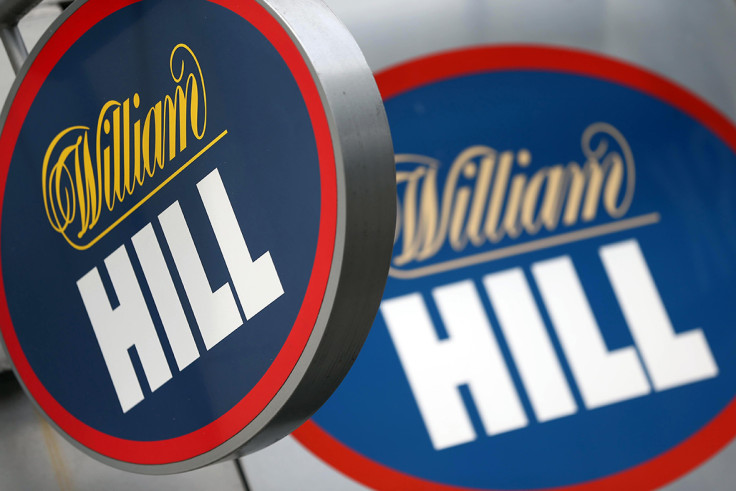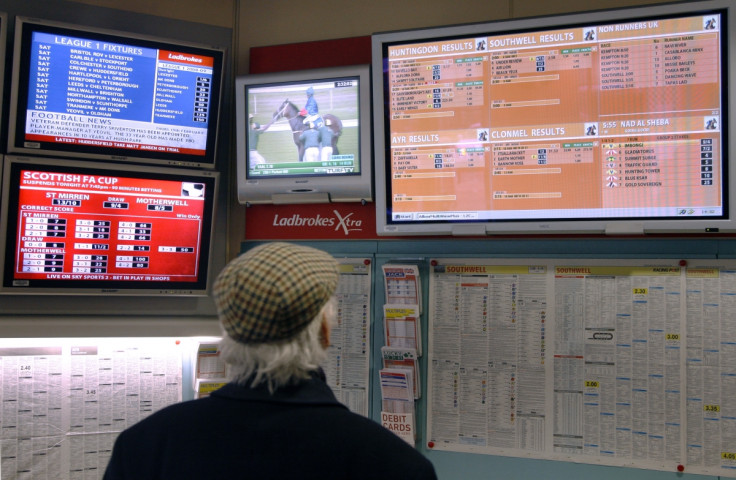Bookmakers must bet on mergers to secure strong online presence
William Hill rejected offer from 888 and Rank Group, while Paddy Power merged with Betfair last year.

The rapidly-evolving nature of the bookmaking and gambling sector has prompted the need for consolidation, and companies choosing to go it alone run the risk of being left in a limbo that could be financially detrimental.
Late last month, William Hill, Britain's largest bookmaker, revealed it had turned down a second takeover offer worth £3.2bn ($4.1bn) from gambling groups Rank Group and 888, stating their offer "continues to substantially undervalue" the business.
The FTSE 100 giant added it saw "no merit" in talking with its two sector peers, indicating the bid presented "significant risk for William Hill shareholders" as it would have involved a highly complicated three-way combination at a very low premium.
The outcome did not come as a surprise for analysts, particularly given the convoluted nature of the proposed deal.
"Our preference is for more focus on improving the existing operations as opposed to international expansion through acquisition," said Stifel analyst Jeffrey Harwood.
"History shows that it is difficult for UK gaming companies to expand internationally and William Hill's experience in Australia demonstrates this."
However, in an industry where consolidation is rife and the prospect of a merger or takeover is never far from the agenda, William Hill's decision to go it alone could prove to be very challenging, particularly as the company attempts to turn around its online division.
"The gambling sector is changing rapidly and high street bookies are in decline, while online platforms are going from strength to strength," Jordan Hiscott, chief trader at Ayondo Markets, told IBTimes UK.
"Companies that have historically excelled as on a standalone basis are looking at the high costs of having a physical presence on the high street, or the changing tastes of customers, and completely rethinking the way they operate."

The need to establish a strong online platform, the fastest-growing part of the industry, has been well recognised by bookmakers, leading to more streamlined operations in the past 12 months.
Last year, GVC, owner of Sportingbet, outbid 888 to clinch its purchase of Bwin, while Paddy Power and Betfair completed their merger in March, creating a company with a revenue of more than £1bn.
Meanwhile Ladbrokes and Gala Coral are also in the process of finalising their merger, after being instructed by the Competition Market Authority to close a combined 400 shops. Higher taxes and stricter regulations have seen company mergers in an attempt to attain scale to absorb growing expenses.
"Regulation, innovation and taxation are the three main points of the betting industry at the moment," Mark Jordan, partner at PwC, explained to IBTimes UK
"The key to success is having investments scale and being able to absorb costs and planning."
Analysts are almost unanimous in believing that bookmakers can not survive without having a good digital product, particularly at a time when a lot of punters opt to stake their wagers online or via a mobile app.
According to a report from the Gambling Commission, the number of betting shops in Britain has fallen from 9,128 at the end of March 2012 to 8,809 in the corresponding period this year.
Aside from the convenience of placing a bet via a smartphone, laptop or tablet, the popularity of online betting can be traced to a number of different factors. Betting online allows customers to compare odds from multiple bookmakers simultaneously, while the promise of "best odds guarantee" is a tempting offer for punters, as is the prospect of receiving a sign-on bonus when they open an account online.
"They [the bookmakers] need an online presence to attract and retain customers," Jordan said.
"Getting the digital strategy right is a massive driver for profitability and companies with big land- based assets need to solve the question of what their shops are going to look like."
Jordan added the market could see a move towards the betting equivalent of a 'click-and-collect' system employed by retailers like John Lewis, where the high street stores provide a facade but most of the business is conducted online.
However, the consolidation trend is likely to peter out over the next couple of years, as the number of available companies, inevitably, shrinks.
"The trend is going to continue for about two or three years, but it is going to become increasingly harder [to consolidate businesses] as there are going to be fewer assets available," he concluded.
© Copyright IBTimes 2024. All rights reserved.






